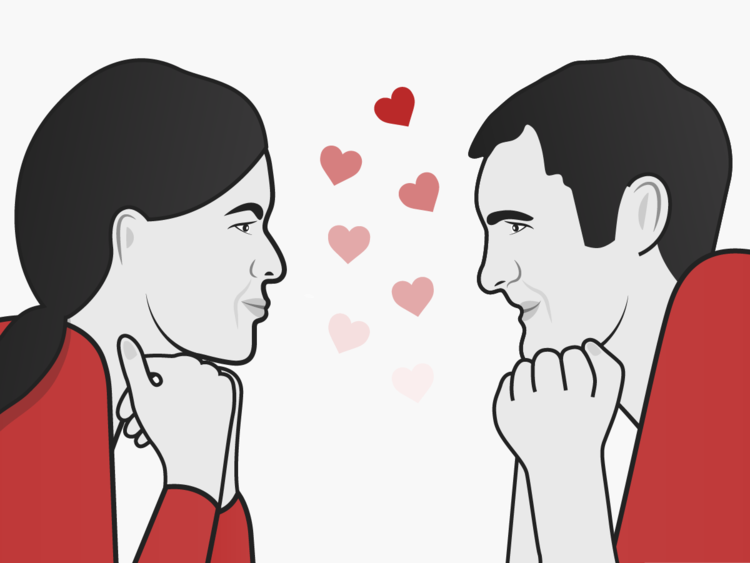For most people, love comes naturally. We believe that falling in love is unintentional and that we cannot control the feeling. However, falling in love is very much under our control. You fall in love when the idea of a romantic relationship is appealing to you. Yo do not randomly fall in love. The extremely rich rarely fall in love with the poor. Love is not instant. It takes time to develop. No wonder it is easy for one to call it quits on a love affair that is still in its infancy but becomes hard when the relationship has been on for a long while.
Can love be manufactured?
Arthur Aron and his colleagues published a paper in the Journal of Personality and Social Psychology, where they claimed to have bread love in the lab. They outlined a lab experiment that made strangers fall in love in 45 minutes. The experiment would start by a group of strangers entering the lab from separate doors and then proceed to sit while facing each other. They responded to 36 highly intimate questions.
Then, after the questions were asked and responded to, the subjects then had to stare into each other’s eyes without saying a word for four minutes. They then compared the results of this particular group to another group of persons who also met for a 45-minute session. The difference was that the second group was allowed to interact freely. The pairs in the first group reported stronger feelings of intimacy; a couple even got married some months after the exercise.
What made Aron’s experiment successful to the extent of generating closeness, intimacy, and eventually love? It all boils down to self-esteem and commitment. Two things happen as a result of two individuals sharing intimate information:
Commitment
First, a person makes themselves vulnerable by sharing sensitive information that may probably be used against them, the information they don’t usually share with strangers. The transmitter demonstrates openness to the receiver as collateral with a prospect of giving the idea of a relationship a greater grounding. This openness makes both sides equally committed to making the relationship work. Because most relationships fail because of a lack of commitment, this sort of commitment is necessary for the prosperity of new relationships. Without commitment, a relationship is as good as dead. An example is couples who are forced into an arranged marriage. These sorts of unions are in no way less stable than marriages of people who love each other. The reason being, couples in arranged marriages are committed to find and grow in love with each other.
Self-esteem
The second force that helps in inducing love, according to Aron’s experiment, is self-esteem. A large part of falling in love with someone includes falling in love with ourselves. Our self-esteem, confidence, and social skills, which are necessary for maintaining a romantic relationship, are affected when we fall in love. These skills need to be regularly reaffirmed. The success of a date empowers us while failure frustrates us. From these experiences, you derive motivation and drive to hone our romantic skills because we naturally have the urge to breed. Sharing intimate facts will improve the receiver’s self-esteem. The receiver feels more confident in their relationship, forming skills when the transmitter shares their intimate secrets.
The feeling of self-worth makes one feel good and attracts them to people who offer them that feeling. Aron gave instructions to the people undertaking the experiment to reveal personal information about themselves. Hence, their doing so should impinge nothing on the receiver’s skills. What happens in most experiments like this one is the participants have a perception that the interaction is authentic. They, therefore, take credit for the openness of their partner.
What Can We Take From Aron’s Experiment
In the experiment, Aron ensured that both partners assumed the roles of the transmitter and the receivers of intimate information. This meant that the forces of commitment and self-esteem operated in each of them, and the result was intimacy.
This experiment furnishes us with lessons that help us in approaching intimate relationships, both for new relationships and the ones that have survived the test of time. Being open may be hard. One may reveal your weaknesses and eventually make them vulnerable, but in the end, it fortifies relationships. Openness, when revealing intimate information, makes partners feel better about each other.







